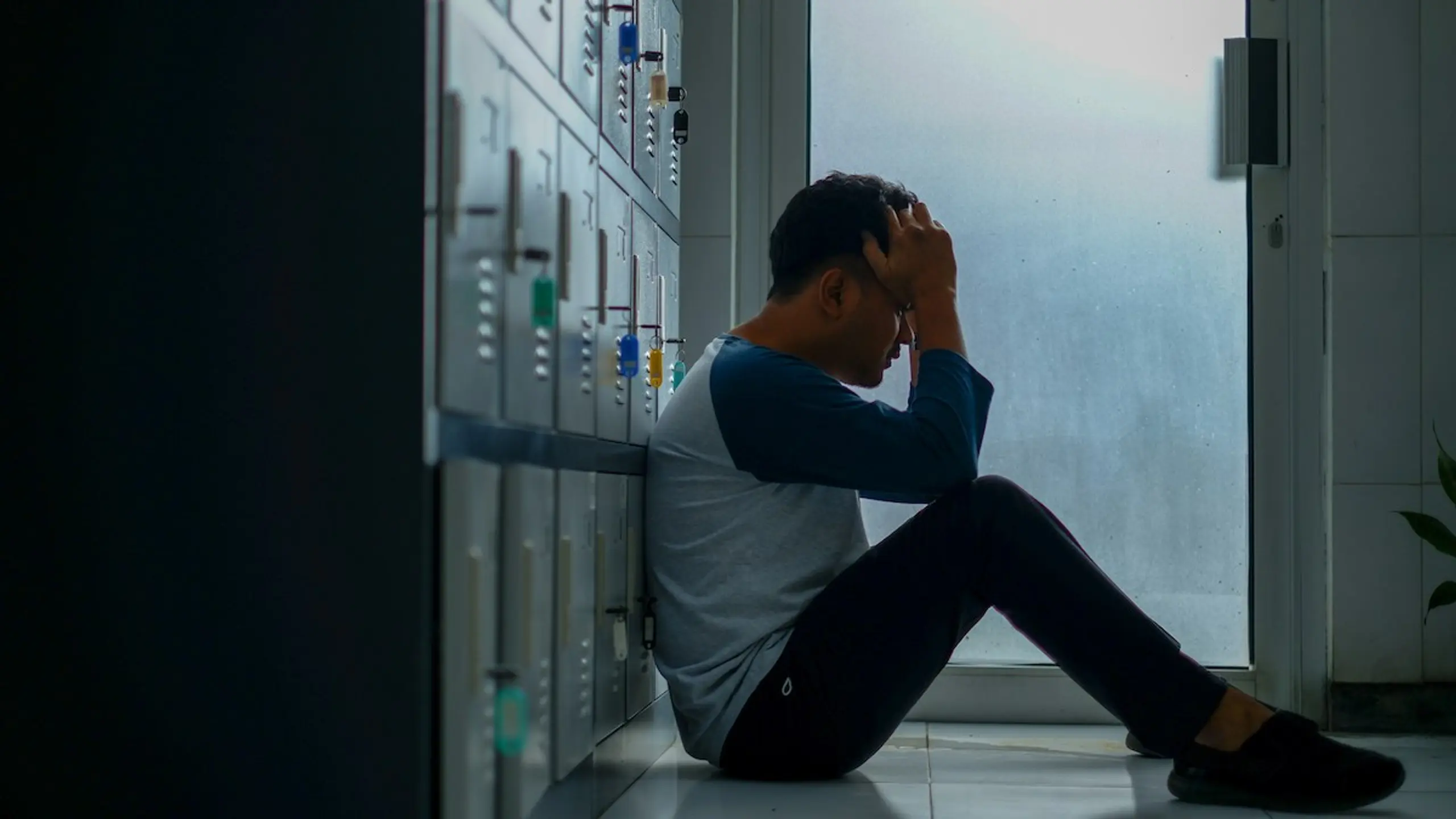
Jump to
Book a visit
$25 typical copay
$100 without insurance
Talk to a doctor about diarrhea symptoms without leaving home.
A virtual consultation for diarrhea treatment helps you get the care you need, with a licensed provider guiding you toward relief — without the need for an in-person visit.
Key takeaways:
- Diarrhea can often be managed at home using simple remedies, but knowing when to see a doctor is important for effective care.
- Staying hydrated and adjusting your diet are essential first steps in relieving diarrhea quickly.
- If diarrhea persists or becomes severe, seeking medical advice ensures appropriate treatment and prevents potential complications.
Dealing with diarrhea can be uncomfortable and inconvenient, disrupting daily routines and impacting overall well-being. While most cases are mild and resolve on their own, knowing how to manage diarrhea effectively at home can provide quick relief and comfort.
In some instances, understanding when to seek medical attention is also essential to prevent complications. This article will cover practical home treatments, when to see a doctor, and what medical treatments are available for more severe cases.
Can you treat diarrhea at home?
Yes, in many cases, diarrhea can be treated at home with simple methods like staying hydrated, adjusting your diet, and using over-the-counter (OTC) medications. Most episodes of diarrhea come from temporary issues, such as mild food poisoning or viral infections, and often get better without a doctor’s visit.
However, it’s important to keep an eye on how symptoms progress. If diarrhea doesn’t start to improve after a few days or seems to get worse, seeing a healthcare provider is a good idea to rule out more serious causes and get the right treatment.
At-home treatments and remedies for diarrhea relief
When treating diarrhea at home, several tried-and-true methods can help provide relief and support recovery:
Stay hydrated
Dehydration is a major concern when dealing with diarrhea because it leads to a quick loss of fluids and electrolytes from the body.
Drinking water, clear broths, and drinks with electrolytes is key to staying hydrated and preventing dehydration. Options like rehydration solutions or sports drinks can help replace important minerals like sodium and potassium, which are often lost during episodes of diarrhea.
Dehydration can escalate quickly, especially in children and older adults, so monitoring urine color as a hydration check is useful. Pale yellow urine typically indicates proper hydration. Dehydration can become serious, especially if diarrhea lasts for more than a day or occurs frequently.
Beyond water, consider drinking oral rehydration solutions (ORS), which provide an ideal mix of water, salt, and sugar to help the body absorb fluids more effectively.
Follow a bland diet
The BRAT diet (bananas, rice, applesauce, and toast) is a gentle eating plan often recommended for those experiencing diarrhea. These foods are low in fiber and easy to digest, which can help firm up stools and reduce bowel movements.
Plain crackers or boiled potatoes can also be beneficial for mild nourishment. In addition to the BRAT diet, eating soft, cooked vegetables and small portions of lean protein like boiled chicken can offer gentle nutrition while avoiding digestive stress.
Avoid caffeine and alcohol
Caffeinated drinks and alcohol can make dehydration worse and irritate the digestive system, which can prolong or intensify diarrhea. It is best to avoid them entirely if you are trying to get rid of diarrhea as fast as possible.
Over-the-counter (OTC) medications
OTC medications like loperamide (Imodium) can be helpful in slowing down bowel movements and providing temporary relief from diarrhea. Bismuth subsalicylate (Pepto Bismol) may also be effective in reducing stool frequency and alleviating stomach discomfort. Always follow dosage instructions on the packaging and consult a pharmacist or doctor if you're unsure.
While OTC medications like loperamide and bismuth subsalicylate can be effective, they may not be suitable for everyone. For instance, children, pregnant individuals, those who take prescription medications, and those with certain chronic illnesses should consult a doctor before using these treatments. Loperamide should also be avoided if diarrhea is caused by an infection, as it can prevent the body from shedding toxins or pathogens.
Additionally, these medications should not be used as long-term solutions and may have side effects like constipation if used inappropriately. Discussing options with a healthcare provider can help determine the best fit for individual needs.
Read our guides on what to eat or drink when experiencing diarrhea and home remedies for diarrhea.
When to see a doctor about diarrhea
While most cases of diarrhea resolve on their own, some situations call for medical attention.
You should see a doctor if:
- Diarrhea lasts more than three days without any signs of improvement.
- There is even a small amount of blood in the stool or ongoing abdominal discomfort.
- Diarrhea interferes with daily activities or causes noticeable weight loss.
You should go to the emergency room if:
- Signs of severe dehydration, such as dizziness, a rapid heart rate, or confusion, appear.
- You develop a fever over 103°F (39.4°C) that doesn’t improve with home care.
- The stool contains a moderate amount of blood or appears black/tarry in color, which could indicate a more serious issue.
Questions to ask your doctor about diarrhea
To make the most of your medical visit, consider asking questions such as:
- What could be causing my diarrhea, and are there specific foods or activities that might be making it worse?
- Are there any tests I need to confirm the cause?
- What treatment options do you recommend, and are there any possible side effects?
- How can I prevent future episodes of diarrhea?
How a doctor can help treat diarrhea
If home treatments don’t work, a doctor can offer additional interventions.
Prescription medications
For more severe or persistent cases of diarrhea, doctors may recommend specific treatments based on the cause. If a bacterial or parasitic infection is detected through testing, antibiotics or antiparasitic medications may be prescribed to target the root issue. Probiotics might also be suggested to help restore the balance of healthy bacteria in the gut, particularly after antibiotic use or when a long-term disruption to gut flora is suspected.
For chronic conditions like IBS or IBD, targeted medications such as anti-inflammatories or antispasmodics may be prescribed to manage symptoms and control flare-ups. Doctors will also typically order a consultation with a registered dietician who will offer dietary guidance as part of the treatment plan. In some cases, lifestyle adjustments and ongoing follow-ups are essential to track progress and make treatment changes as needed. This comprehensive approach helps tailor care to individual needs, ensuring effective management of symptoms and long-term relief.
Diagnostic testing
If diarrhea is chronic or severe, a healthcare provider might suggest various diagnostic tests to pinpoint the cause. Stool tests are commonly used to check for bacteria, parasites, or signs of inflammation, giving clues to potential infections or digestive disorders like IBD. Blood tests can further reveal nutrient deficiencies, anemia, or markers of inflammation, which may indicate underlying conditions such as celiac disease or autoimmune issues.
Sometimes, imaging studies like CT scans or ultrasounds may be recommended to examine the abdominal area for any structural problems or signs of inflammation. For persistent or unexplained cases, procedures such as colonoscopy or endoscopy allow doctors to visually inspect the digestive tract and take tissue samples for closer analysis.
Hydration therapy
If diarrhea leads to severe dehydration, doctors may use intravenous (IV) fluids to quickly replace lost water and essential electrolytes like sodium and potassium. These fluids help keep blood pressure steady and support organ function. IV hydration is usually done in a hospital or urgent care setting so that medical staff can keep a close eye on the patient and catch any complications early.
IV therapy helps prevent problems caused by severe dehydration (low blood pressure, dizziness, confusion) by quickly rehydrating the body and restoring balance. Often, this treatment is combined with other medications that target the root cause of diarrhea, supporting overall recovery and preventing further health concerns.
Frequently asked questions: getting rid of diarrhea quickly
Here are answers to some common questions that may come up when trying to manage diarrhea:
How can you get rid of diarrhea quickly when you’re out in public, school, or work?
If diarrhea strikes while you’re away from home, OTC medications like loperamide can offer fast relief. However, loperamide should only be used in the right context, as it is not suitable for diarrhea caused by infections. Sipping on water and avoiding any food or drink that could irritate the stomach further is also key until you can properly rest.
Planning ahead by carrying OTC antidiarrheal medication and staying mindful of what you eat can also help prevent sudden bouts of diarrhea when you’re away from home.
Are there any specific foods or drinks that can help stop diarrhea quickly?
Yes, bland foods such as bananas, plain rice, applesauce, and toast can help soothe the digestive system. Drinking fluids with electrolytes, such as coconut water or sports drinks, can also support hydration and recovery.
How can you stop diarrhea at home when you’re pregnant?
Pregnant women should be cautious when treating diarrhea and consult their healthcare provider immediately for recommendations. Staying hydrated and following a bland diet are generally considered safe first steps.
Managing diarrhea
Managing diarrhea at home can be manageable with simple steps like staying hydrated, eating bland foods, and using OTC remedies when necessary. If symptoms don’t improve or become severe, reaching out to a healthcare provider is important for proper treatment and to prevent any complications. Recognizing when to seek medical help can make a big difference in recovery and maintaining good digestive health.
General Medicine follows a strict editorial process, including using real experts to write our articles, vetted primary sources, fact-checking, a secondary medical review, and updates as necessary. This article was medically reviewed and fact checked by Dr. Pallabi Sanyal-Dey, MD.
Sources
Belasco R, Edwards T, Munoz AJ, Rayo V, Buono MJ. The Effect of Hydration on Urine Color Objectively Evaluated in CIE L*a*b* Color Space. Front Nutr. 2020 Oct 26;7:576974. doi: 10.3389/fnut.2020.576974. PMID: 33195369; PMCID: PMC7649145. https://pmc.ncbi.nlm.nih.gov/articles/PMC7649145/.
Tribble DR. Antibiotic Therapy for Acute Watery Diarrhea and Dysentery. Mil Med. 2017 Sep;182(S2):17-25. doi: 10.7205/MILMED-D-17-00068. PMID: 28885920; PMCID: PMC5650106. https://pubmed.ncbi.nlm.nih.gov/28885920/.
Guarino A, Guandalini S, Lo Vecchio A. Probiotics for Prevention and Treatment of Diarrhea. J Clin Gastroenterol. 2015 Nov-Dec;49 Suppl 1:S37-45. doi: 10.1097/MCG.0000000000000349. PMID: 26447963. https://pubmed.ncbi.nlm.nih.gov/26447963/.
Our editorial standards
At General Medicine, we cut through the clutter to make health care clearer, faster, and easier to navigate. Every article is grounded in evidence-based research and peer-reviewed journals, reviewed by medical professionals, and written in accessible language that helps you make health decisions with confidence. We’re committed to ensuring the quality and trustworthiness of our content and editorial process by providing information that is up-to-date, accurate, and actually useful. For more details on our editorial process, see here.



